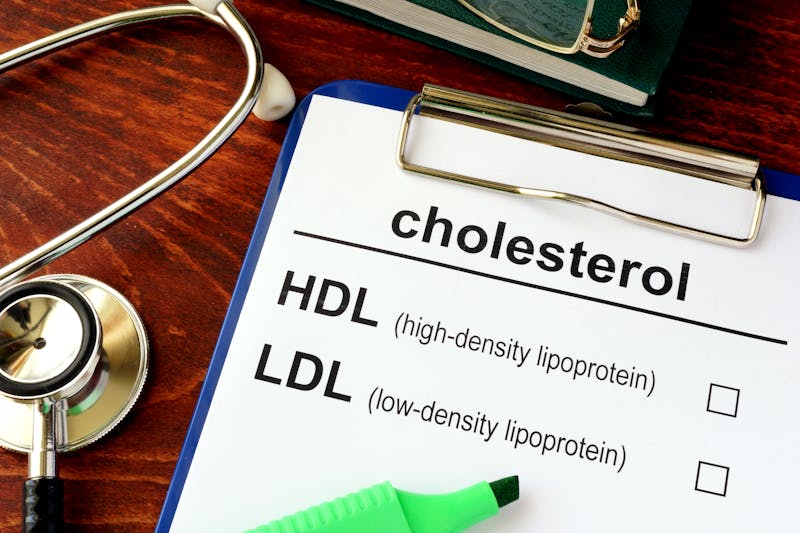New AHA report, but same old dogma

The American Heart Association (AHA) published a “new” science advisory on Dietary Cholesterol and Cardiovascular Risk. On the surface, this sounds promising. It is considering new science as it applies to dietary cholesterol and its impact (or lack thereof) on heart disease risk. Surely it must be ready to update its policy and conclude that dietary cholesterol is not a concern. Right?
Nope. That definitely does not happen, and I need help understanding why.
But first, let’s start with the good stuff.
The report has encouraging comments that, on the surface, seem to suggest the AHA has undergone an awakening on this topic. These comments include the following:
“Our meta-regression analysis using data from controlled feeding studies in which the ratio of polyunsaturated fatty acid to saturated fatty acid in the comparison diets was matched indicated that dietary cholesterol significantly increased total cholesterol, but the findings were not significant for the stronger predictor of CVD risk, LDL cholesterol, or HDL cholesterol.”
And:
“Findings from observational studies have not generally supported an association between dietary cholesterol and CVD risk”
It is encouraging to see the AHA discussing how raising total cholesterol does not equal increased cardiac risk. Bravo! Total cholesterol is a concept long past its prime. Even LDL-C may be of limited value with use of ratios and advanced lipid testing (read more about cholesterol and low-carb diets).
The AHA also clarified the following:
“Most observational studies, conducted in several countries, generally reported no significant association of dietary cholesterol or egg intake with CVD outcomes in terms of CHD, myocardial infarction, and stroke risk.”
“Furthermore, when energy intake was included as a covariate in the statistical models, no significant association was observed between dietary cholesterol and fatal or nonfatal CHD or stroke”
This is such an important point, and I am thrilled to see that the report authors made it. It is easy to cite observational studies and their conclusions without digging into the details of the study. But these researchers didn’t fall for that trap. Instead, they highlight how the majority of studies show no association between dietary cholesterol intake and cardiovascular risk. And those that do show an association lose their significance when controlled for total caloric intake. In other words, the people at risk were those who ate more calories, not those who ate more cholesterol.
I believe this is a key point. Since most of the existing data involved a combined high-carb/high-fat Western diet, how can we help make sense in the context of a healthy low-carb diet? We can’t exactly, but controlling for those who aren’t overeating calories is a good place to start.
If you don’t over eat, there is no evidence of any kind that dietary cholesterol is harmful. LCHF seems to have that covered with its natural appetite control.
Finally, the report authors also discuss the concept of the company foods high in cholesterol keeps. We don’t usually eat eggs or cholesterol by themselves. They are part of a meal. The report states:
“This is of particular concern in the United States, where eggs are frequently accompanied by bacon or sausage.”
What about pancakes, waffles, syrup, ketchup and potatoes? My guess is that those are common accompaniments for eggs. It certainly seems that when your focus is on cholesterol and LDL, that’s all you can see. (Read more about the science of eggs in our prior post.)
On the whole, this report seems like a great summary of how science exonerates dietary cholesterol from increasing heart disease risk.
And this is where I get lost. I need someone to please explain to me how they reached their conclusion that, based on their science advisory, the AHA recommends:
“… consumers are advised to eat a dietary pattern characterized by fruits, vegetables, whole grains, low-fat or fat-free dairy products, lean protein sources, nuts, seeds, and vegetable oils, consistent with those recommended in the 2015 to 2020 DGA. These patterns have a relatively high ratio of polyunsaturated fatty acid to saturated fatty acid and are low in cholesterol, achieved by minimizing the intake of major sources of saturated fat intake (animal fats) and including liquid non-tropical vegetable oils. Choosing plant-based protein sources will limit cholesterol intake.”
The conclusion is a complete disconnect from the science the report presents. What started as a “science” update turned into an opinion piece that disregards the science just presented. That is what I expect to see on Netflix documentaries, but I expect more from a scientific organization such as the AHA.
At Diet Doctor we will continue to call out these dangerous discrepancies. Organizations should not be able to espouse their opinion and masquerade it as science. Every time we see it, we will mention it so that you, our readers, know the difference.
Thanks for reading,
Bret Scher, MD FACC


Cholesterol and
low-carb diets
GuideCholesterol is often viewed negatively due to its historical association with heart disease. However, its role in heart health is controversial. Read on to learn what cholesterol is, how your body uses it, why low-carb and keto diets may lead to a change in blood cholesterol levels.